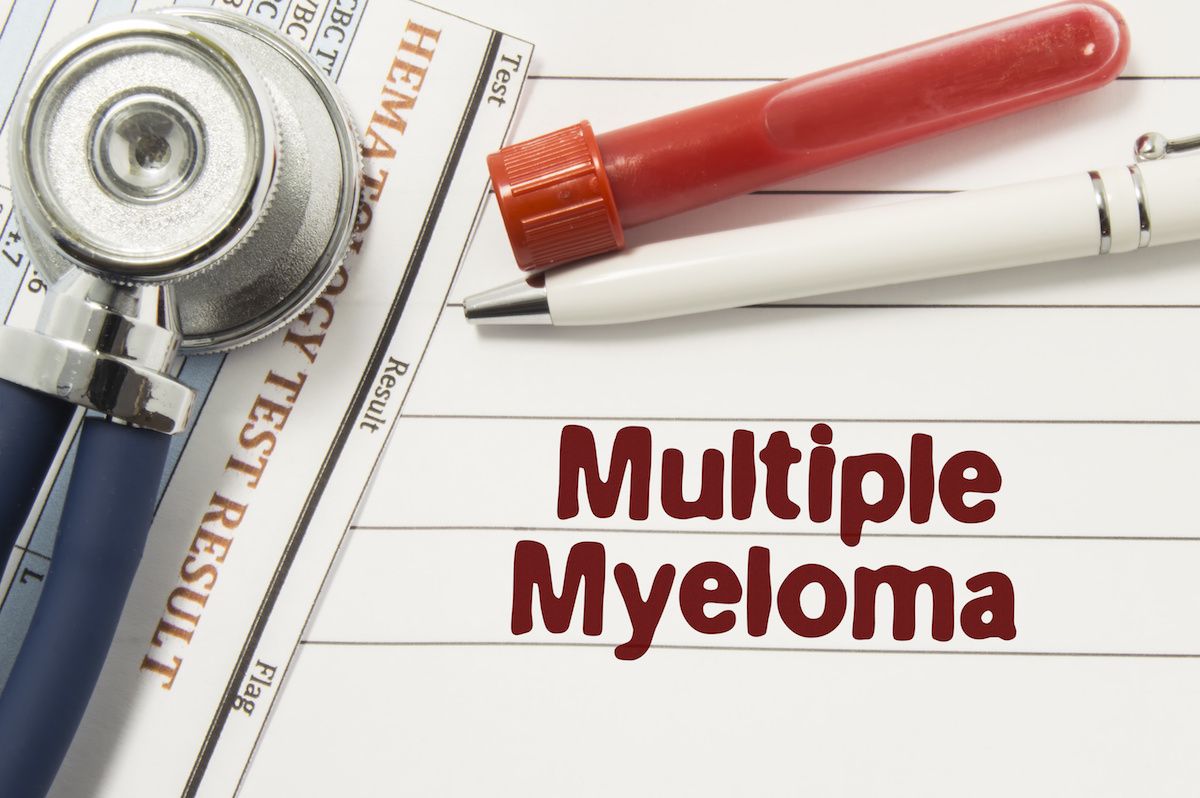Roswell Park has launched three clinical trials of immunotherapies for multiple myeloma, with a fourth expected to open in early 2019. The clinical trials reflect a growing interest in finding ways to use the patient’s own immune system to stop the disease in its tracks.
“We believe cancer cells develop every day in every human being, but usually the immune system recognizes them and kills them, and that’s that,” says Jens Hillengass, MD, PhD, Roswell Park’s Chief of Myeloma. “But if the immune system misses something, it doesn’t kill those cancer cells. So a lot of thought goes into how we can re-engage the immune system to attack them.”
Never miss another Cancer Talk blog!
Sign up to receive our monthly Cancer Talk e-newsletter.
Sign up!Here are the three approaches currently being studied in clinical trials at Roswell Park:
1. CAR T-Cell Therapy
Previous clinical trials have shown that CAR T-cell immunotherapy can lead to complete remission in patients with advanced multiple myeloma. Encouraged by those results, Roswell Park has opened a CAR T-cell clinical trial for multiple myeloma patients whose disease has either relapsed (gone into remission and then returned) or is refractory (has not gone into remission despite treatment).
In CAR T-cell therapy, the patient’s T cells — white blood cells that are part of the immune system — are removed from the blood, “re-engineered” to enable them to recognize the cancer cells, multiplied into the millions, and returned to the patient intravenously so they can hunt down and kill the abnormal cells. The multiple myeloma CAR T-cell clinical trial is designed to “train” the T-cells “to specifically attack BCMA, a protein on the surface of the myeloma cells,” explains Dr. Hillengass.
To qualify for the phase I/II trial, a patient must have multiple myeloma that is relapsed or refractory — “patients whose disease is quite advanced,” says Kelvin Lee, MD, former Chair of Immunology and Co-Leader of the Tumor Immunology and Immunotherapy Program. “They have to have failed three lines of chemotherapy.
“As myeloma patients relapse, their disease becomes harder and harder to treat,” he adds. “With standard chemotherapy, the response rate is usually pretty dismal.
“The exciting aspect of this particular clinical trial is that CAR T-cell therapy seems to be effective in a significant number of those patients. Some people are going into complete remission within two weeks.” Researchers can’t predict how long those remissions will last.
For some multiple myeloma patients, CAR T-cell therapy may be an alternative to an allogeneic bone marrow transplant (BMT). With BMT, “the treatment response is better when there is less disease in the body,” explains Dr. Hillengass. “But with CAR T-cell therapy, we can use the treatment even if the disease is far advanced and progressing. We even think a bit of tumor mass may not be too bad, because it gives the CAR T cells something to attack.”
A second, similar CAR T-cell clinical trial should be open for multiple myeloma patients in a few months. “We opened another trial just to accommodate all the patients coming to us for this treatment,” says Dr. Hillengass.
CAR T-cell therapy is one type of adoptive T-cell transfer, which is one of seven types of immunotherapy offered by Roswell Park’s Division of Translational Immuno-Oncology.
2. SurVaxM Therapeutic Cancer Vaccine
Another multiple myeloma clinical trial (Early Phase), currently underway, is studying the effectiveness of the therapeutic cancer vaccine SurVaxM, originally developed at Roswell Park to prevent recurrence of glioblastoma, a type of brain cancer. The vaccine targets survivin, a protein produced by both glioblastoma and multiple myeloma cells. “Survivin allows the cancer cell to survive — that’s why it’s called survivin,” explains Robert Fenstermaker, MD, Chair of Neurosurgery at Roswell Park, who developed the vaccine with Michael Ciesielski, PhD, Department of Neurosurgery.
Given as an injection, SurVaxM triggers the immune system to cut off the supply of survivin that the cancer cells need to stay alive. “The idea,” says Dr. Lee, “is to vaccinate multiple myeloma patients who are in what we call the maintenance phase. They’ve completed the initial round of therapy, they have either low or undetectable amounts of myeloma, and we’re trying to enhance their immune responses so their immune system can keep their myeloma under control.”
3. Abatacept (Orencia®): Modified Antibody
This clinical trial (phase II) involves off-label use of the immunotherapy drug abatacept (brand name Orencia®), which is FDA-approved for the treatment of rheumatoid arthritis. A protein called CD28 on the surface of multiple myeloma cells protects the cells from being destroyed by chemotherapy, but laboratory studies have shown that abatacept may be able to block that protein. This study is investigating whether that action can weaken myeloma cells so they can be destroyed by chemotherapy.
“We hope we can reset the clock on myeloma with abatacept,” says Dr. Lee.
He adds that hopes are high for the success of immunotherapies targeting multiple myeloma: “I think we’re seeing a major change in the way we take care of the disease.”


